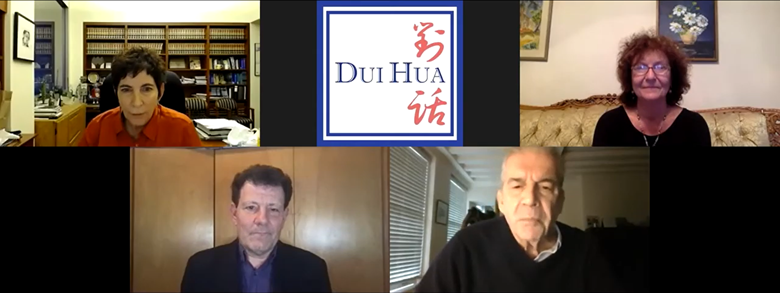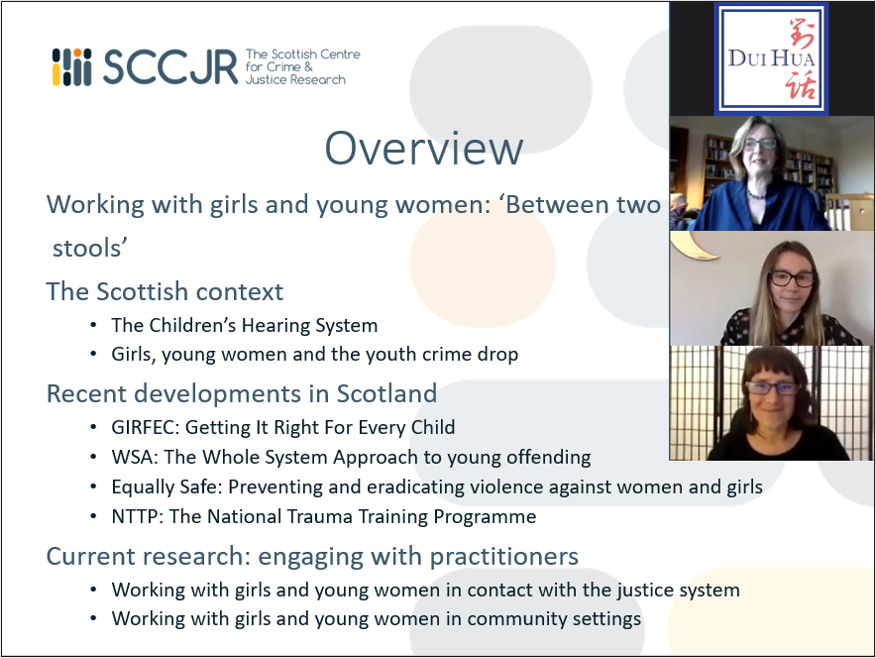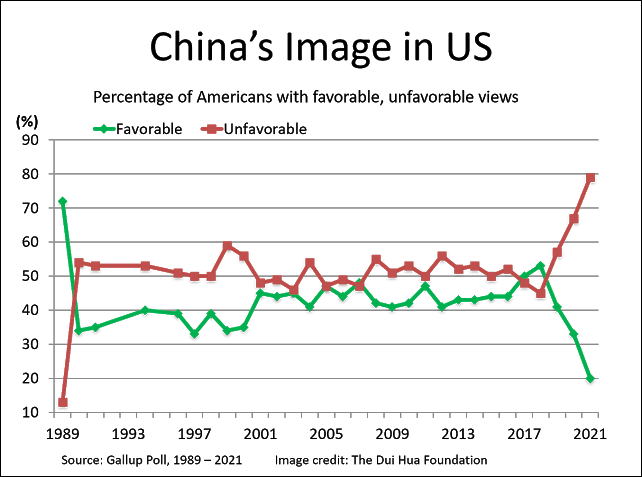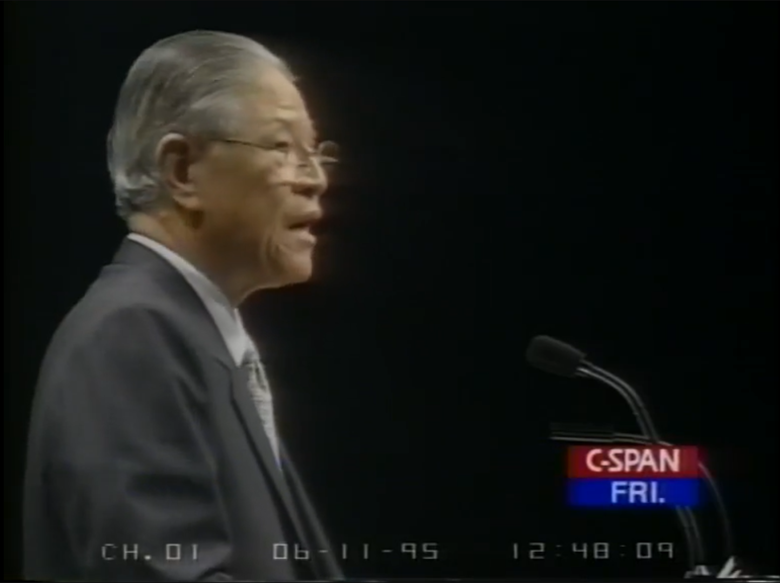EVENTS
CPAC Highlights Conservative Anger at China

The most recent Gallup poll on American attitudes towards foreign countries was released on March 1. The poll, conducted February 3-18, 2021, revealed a sharp drop in American public opinion towards China over the previous 12 months, with 20 percent having a favorable view and 79 percent having an unfavorable view. Among the key demographics polled by Gallup were self-identified conservatives, of whom less than 10 percent had a favorable view of China.
Not surprisingly, China was the target of several speeches and no less than six panels at the annual Conservative Political Action Conference (CPAC), the principal gathering of American conservatives. CPAC took place in Orlando, Florida, from February 25-28, 2021. The titles of the six panels on China reflect the wide-ranging list of conservative concerns.
On February 26, three panels were held:
- “Big Tech is for Sale and China and Russia are Buying”
- “Familiarity Breeds Contempt: How Will China’s Neighbors Survive”
- “China Subverts America: Winning Without Fighting”
On February 27, the remaining panels were held:
- “Quad Goals: Fighting Communist China from All Four Corners”
- “Love and Hate Relations between China and North Korea – A Threat to America?”
- “China’s Puppets in South Korea and Hong Kong”

Eliminating 10-Year Visas
Five conservative senators didn’t even wait for the conference to begin, introducing legislation on February 24 titled the Visa Security Act. The act would end China’s access to multiple entry, 10-year visas until Beijing ceases “economic and industrial espionage” against the United States. The mutual granting of 10-year multiple entry visas was considered by the Obama administration a major accomplishment of its engagement policy with China.
In one particularly hard-hitting speech delivered at CPAC on February 26, Florida Senator Rick Scott stated that he would not allow “any more bad trade deals that favor Communist China and hurt American workers.” Echoes of the former president’s rhetoric could be heard as Scott added that China “is jailing and murdering its own citizens . . . because they have spoken the truth about the Wuhan virus.”
In an aside during his own speech on the Bill of Rights, former Secretary of State Mike Pompeo accused the Biden administration of sending “mixed messages” on the Chinese persecution of religious minorities in Xinjiang. Mr. Pompeo was doubtless referring to confusion arising from apparently contradictory statements by Secretary of State Tony Blinken, who agreed with Pompeo’s designation of China as committing genocide in Xinjiang, and United Nations Ambassador Linda Thomas-Greenfield who stated that the designation was being reviewed because all the procedures were not followed. The administration has also signaled shifting views on whether to boycott the 2022 Olympic Games in Beijing.
On Sunday, February 28, the last day of CPAC, former President Donald Trump gave a 90-minute speech loaded with attacks on China, accusing the country of having “ripped us off for years.” Mr. Trump proposed that American companies who leave America and create jobs in China should be “tariffed, fined and punished.” He accused the World Health Organization of being a puppet of China and resurrected use of the term “China virus” to refer to Covid-19. President Biden has banned use of the term in his administration as “racist.” Trump denied that he was considering forming a third party, but he didn’t indicate whether or not he’d run for president again in 2024.

A New Front – US State Legislation Targets China
The day after CPAC concluded, Florida governor Ron DeSantis opened a new front in the all-of-government confrontation with China by proposing two bills at the opening session of Florida’s legislature. The bills came in addition to a bill introduced in the previous session that would curb China’s influence in academic fields by requiring disclosure of all donations exceeding $50,000 from foreign governments. The two new bills would ban state and local governments from purchasing products 100 percent made in China and increase penalties for technology theft and trafficking in trade secrets.
The strategy of disrupting relationships between US states and Chinese provinces could prove to be a significant deterrent to trade and investment between the two countries, as well as exchanges in other areas such as education. There are currently nearly 300 sister city and sister state relationships between American and Chinese entities.
EXCHANGES
Exchanges is a feature that explores Dui Hua’s International Symposium on Girls in Conflict with the Law as well as other expert exchanges and dialogues.
“The biggest challenge is poverty and lack of opportunities”

The most recent webinars in the International Symposium for Girls in Conflict with the Law may have had different foci—international sex trafficking and working with justice-involved girls in Scotland—but they shared some conclusions. Panelists in both webinars emphasized the need for poverty reduction and community-based responses to youth offending.
“Sex Trafficking of Girls” took place on February 23 and featured Superior Court Judge Susan Breall, Coordinator of the San Francisco Collaborative Against Human Trafficking (SFCAHT) Antonia Lavine, and journalist Nicholas Kristof speaking about their work to combat sex trafficking. In addition to her work in the Bay Area, Lavine also discussed her career fighting sex trafficking in the European Union, noting how cohesive international laws make prosecuting traffickers easier. Judge Breall discussed her work on the juvenile court working with survivors of trafficking. Nicholas Kristof recounted the events that led him to address sex trafficking in his work, including the horrifying commodification he witnessed in the Cambodian sex industry. With Judge Breall, Kristof also discussed the need to disrupt the profitability and impunity of sex trafficking industries around the world.
All three speakers emphasized that this problem needed to be addressed at its root causes. Referring to Eastern Europe, but also more broadly, Lavine said, “the biggest challenge is, of course, poverty and lack of opportunities.” Judge Breall echoed this, saying, “we have to shore up our torn and inadequate social safety net,” while Kristof offered a similar sentiment:
“The US has always accepted child poverty rates that are just among the highest in the industrialized world…If we could reduce child poverty in half that would make a real dent in some of these underlying causes, underlying pipelines.”
On March 2, “Working with Young Women and Girls” built on the theme of the power of government and policy in preventing girls from engaging in criminal behavior. The University of Glasgow’s Dr. Susan Batchelor and Dr. Michele Burman detailed the very real progress Scotland has made reducing juvenile offending, drawing on their work in the field of feminist youth justice to show how proper policy and investment can lead to tangible benefits for communities.

Scotland has adopted a rights-based approach to youth crime and poverty, including a national policy framework called GIRFECT or “Getting It Right for Every Child,” that puts the needs and well-being of the child at the center of all criminal procedures and processes. Drs. Batchelor and Burman described a system of community volunteer panels, properly resourced social services, and “multi-agency working and joined-up thinking to ensure the best outcomes.” This “whole system approach” to youth offending adopted by the Scottish government echoed a comment by Judge Breall in the previous webinar: “there has to be collaboration, and there has to be a coordinated community response.” According to Dr. Burman, this approach has clear benefits:
“Now, research undertaken by myself and colleagues in 2015 revealed that the whole system approach has definitely supported more streamlined planning, assessment, and decision-making processes for children and young people who come into conflict with the law. This includes diversion from statutory measures, prosecution, and custody through early intervention.”
You can watch both of these webinars, and others, at GirlsJustice.org, an online resource dedicated to the International Symposium on Girls in Conflict with the Law. GirlsJustice.org features recordings of all Symposium webinars as well as information about the panelists, key research on girls’ justice, and opportunities to learn more about the crisis of girls in conflict with the law.
Go here to learn more about this webinar, the speakers, and the Symposium.
PUBLICATIONS ROUND UP
Featured: Human Rights Journal, March 2, 2021: China’s Popularity in US Sinks to Record Low

Reflecting a year of tense relations between the United States and China, China’s favorability rating among Americans as measured by the annual Gallup Poll has dropped to its lowest level in at least 40 years. The survey of 1,021 adults, carried out from February 3 to 28, 2021, found that 20 percent of American adults have a favorable view of China – down 13 points from the 2020 result – while 79 percent have an unfavorable view, an increase of 12 points over the 2020 result.
See Also: Prisoner Updates 2021 #2
The second Prisoner Updates issue of 2021 looks at web administrators who received harsh sentences for allegedly doxing Xi Jinping’s daughter, Guangzhou activists detained for subversion, an artist released on bail nearly two years after his apprehension, and a crackdown of the Church of Almighty God in Xuzhou.
See Also: Prisoner Updates 2020 #3
The third Prisoner Update explores the case of a veteran pro-democracy activist who had his political rights restored. It also updates a case in which an environmental activist from Guangdong received a sentence reduction after being transferred to a prison in Fujian.
JOHN KAMM REMEMBERS
John Kamm Remembers is a feature that explores Kamm’s human rights advocacy prior to and since Dui Hua’s establishment in 1999.
Letters from Congress, Part I

Acting on a recommendation by Assistant Secretary of State for Democracy Human Rights and Labor Richard Shifter, I began submitting prisoner lists to the Chinese government in 1991. In January 1995 I gathered all the responses on prisoners that I received from the Ministry of Justice (MOJ) and the State Council Information Office (SCIO) in 1993 and 1994, 50 in all, and sent a booklet containing the information to senior officials of the MOJ and the SCIO in Beijing.
I flew from Hong Kong to Beijing on Wednesday, February 15, and immediately went to the Jianguo Hotel upon arrival. The next day I met with SCIO Minister Zeng Jianhui, and Liang Gang, Director of the MOJ’s Prison Administration Bureau and his colleague Zhang Jinsheng. (Zeng, now 93 years old, had served as Vice President of the New China News Agency when he was picked to head the SCIO in 1990. He went on to chair the National People’s Congress Foreign Affairs Committee.) We met at the offices of the SCIO, a drab structure next to the Asian Games Village, a 30-minute drive from the Jianguo Hotel.
I started the conversation by asking Minister Zeng whether he had read the recently released human rights report on China released by the Department of State. He replied that he had read it and felt that it was negative and full of mistakes. I pointed out that the report made favorable mention of my cooperation with the Chinese government on prisoner information. Minister Zeng called that mention one of the few positive things in the report.

I then asked what he thought of the compilation of prisoner information that I had faxed to him a few weeks before. He replied that he had received it. “What do you think?” I asked. “You have accurately reported what you were told.” I then asked if we should continue our cooperation, and the minister replied “Of course.”
I took a chance, apologizing for causing so much work for the MOJ. “I suggest I limit my inquiries to 100 names in 1995, 25 a quarter.” Minister Zeng checked with the MOJ officials, and they nodded agreement. “Great,” I said, and extended my hand for a handshake. All present shook hands. Information on prisoners would be provided during in-person meetings or by fax.
I then handed over my first list of 25 names, singling out Yang Lianzi, Zhao Fengping, and Jigme Sangpo for special attention. Yang was an itinerant troubadour who entertained crowds at Tiananmen Square with protest songs and poems. Zhao founded the Northeast China Autonomous People’s Republic, a counterrevolutionary organization. Jigme Sangpo had been a schoolteacher in Lhasa who was now serving a long sentence for counterrevolution.
After I left the meeting I was hosted to a dinner by my host, the China Council for the Promotion of International Trade. The conversation centered around prospects for Most Favored Nation (MFN) renewal in 1995.
I returned to Beijing on April 24, 1995 and met with the SCIO Director of the Domestic Information Bureau Zhou Changnian and the MOJ’s Liang Gang, director of the Prison Administration Bureau. We met at the SCIO office on April 26. As soon as we sat down, Liang Gang handed over responses to 19 of the names on my first list of 25 names. He explained the difficulties in obtaining information on prisoners but said the MOJ was committed to providing information to the best of its ability. I handed over my second list of 25 names. I was informed that the SCIO had established a small human rights unit within the office.
As I had done at the February meeting, I focused on several prisoners including Hong Kong journalist Xi Yang in prison for trafficking in state secrets, Tibetan prisoner Tenpa Wangdrag who had been severely punished for attempting to hand over a letter to American Ambassador Jim Lilley when he visited Drapchi Prison, and Ahmet Jan, a young Uyghur who had been given a long prison sentence for establishing a reactionary organization. After the meeting, I visited bookstores where I found the names and basic information on several previously unknown prisoners. Their names were added to my lists.
Not long after this April visit, the MOJ sent out a directive to prisons under its control requiring them to report on a regular basis the situations of political and religious prisoners.
Taiwan Strait Crisis
In 1994, Taiwan President Lee Teng-hui transited Honolulu on his way to South America, where a number of countries maintained diplomatic relations with the Republic of China. President Bill Clinton’s State Department refused to grant Lee a visa, so he spent the evening on his plane, on the tarmac.
A year later, Lee Teng-hui was invited to speak at his alma mater, Cornell University. Lee accepted the invitation. Chinese foreign minister Qian Qichen claimed that Secretary of State Warren Christopher assured him in April 1995 that Lee would not be granted a visa. Whatever the truth, Congress stepped in and passed a concurrent resolution. Even though a concurrent resolution, as opposed to a joint resolution, need not be signed by the president, the State Department relented and issued the visa. Lee visited Cornell June 9-10, 1995.

Beijing was furious and accused the United States of violating the “One China” principle and “ruining US-China relations.” In July and August, the Chinese military fired barrages of missiles into the waters off Taiwan, mobilized troops in Fujian Province, and conducted amphibious landing exercises.
Bill Clinton’s administration responded by bolstering the US naval presence in the area around Taiwan. Two aircraft battle groups were dispatched, and one of them sailed through the Taiwan Strait. China stopped the missile firings, and it appeared that the Chinese military had backed down, but the relaxation of tensions proved short-lived. In March 1996, just before Taiwan’s presidential election, the firings resumed. Once again, the United States dispatched a carrier battle group to the region. US-China relations had entered a period of crisis that was to last through the November 1996 US presidential election.
My cooperation with the SCIO and MOJ stalled. For my part, I sent my third and fourth quarter lists to the MOJ in August and December 1995. As I told Chinese officials at the time, I had lived up to my side of the agreement.
Stalemate
I traveled to Beijing in February and May 1996, meeting with the SCIO and the MOJ on both trips. I was told by both organizations, and by the Ministry of Foreign Affairs (MFA), that it had been decided to suspend providing information to me “for the time being,” due to tensions in US-China relations.
In addition to the fallout from the Taiwan Strait crisis, Beijing was increasingly concerned about the likelihood that the United States would put forward a China resolution at the Human Rights Commission in Geneva. If that happened, I was told by a senior official in the MFA, US-China relations would enter an “ice age.” I was also told that the best way to repair relations would be for President Clinton to invite Chinese President Jiang Zemin to make a state visit to the United States.
On June 2, 1996, I arrived in Washington to present a list of recommendations for US policy towards China now that MFN had been extended without human rights conditions. My recommendations included establishing a consulate in Lhasa, setting up a prisoner registry, and putting together a bipartisan, bicameral commission on human rights in China. I met with members of the Clinton administration and Congress to introduce my recommendations and to ask a favor: would they be willing to write letters urging Beijing to follow through on commitments to provide information, as promised, on prisoners about whom I had asked in 1995?
Prior to my visit to Washington in June, I went to Beijing in May and managed to hand over a new list of 25 names to MOJ, thus bringing to 100 the number of outstanding inquiries. My thinking was to keep the pressure on while I was waiting for responses to the remaining 75 names on the 1995 lists. It was a tactic I would use again before Jiang Zemin’s state visit to the United States in October 1997.
Starting with my testimonies on MFN in 1990, I had met with scores of members of the House of Representatives, Senators, and senior staff in Washington, San Francisco, and Hong Kong, and had formed strong friendships with several. My visits to Washington were facilitated by Hal Furman, a lawyer who had served in the Reagan administration and who had lost a narrow race for Senator from Nevada in 1994.
The plan I worked out with Mr. Furman was to ask members of both chambers, from both parties, and with different China positions to write letters addressed to me for forwarding, or directly to Chinese officials including the Chinese ambassador in Washington. On the early June 1996 trip, I asked Senators John Kerry (D-MA), Craig Thomas (R-WY) and congressmen Matt Salmon (R-AR) and Ed Royce (R-CA) to write letters. They all agreed to do so.

